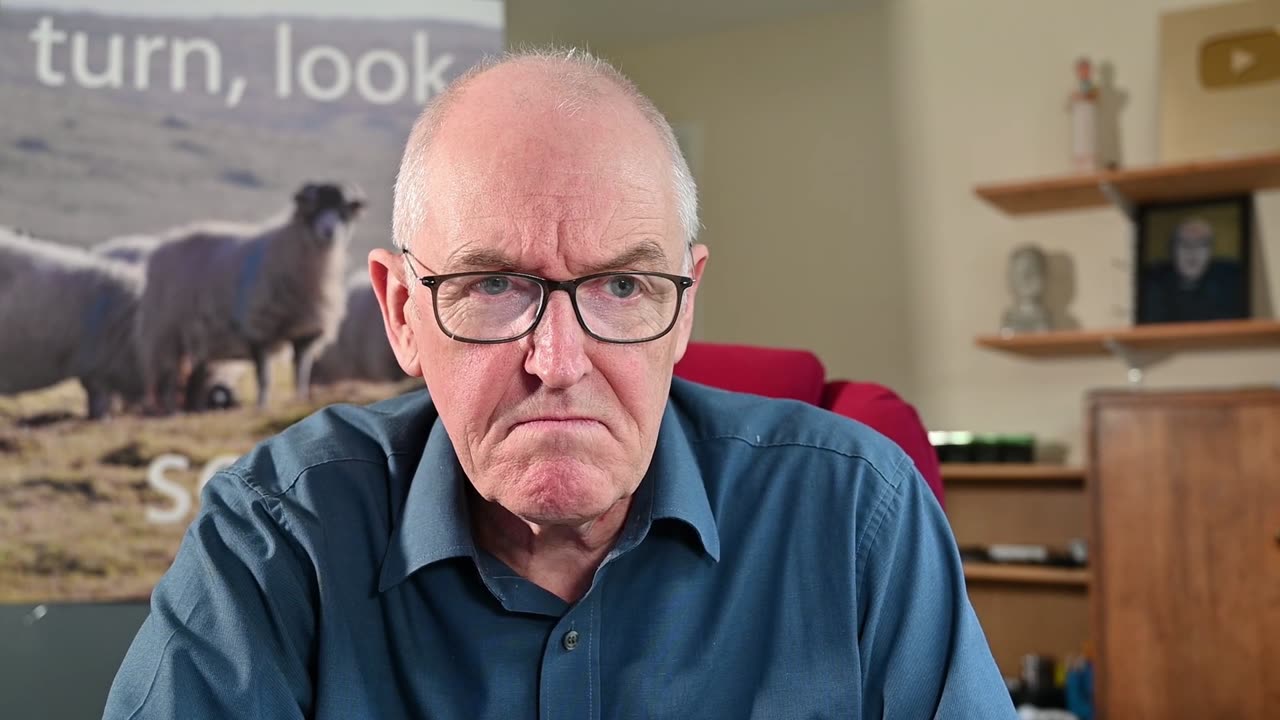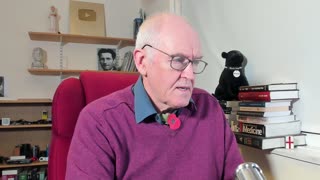Premium Only Content

Paramedic report
March 2020 Paramedic stress
https://www.covid19inquiry.scot/sites/default/files/ev-documents/sci-wt0354-000001.pdf
Robert Pollock
Toe tagging letter. Discussions around age group, 70+ initially, discussion of over 50s
Tough times ahead, would be supported
Implementation unclear, but caused stress and pressures
Clinical Adviser Paramedic, worked as a frontline paramedic during the pandemic.
Do Not Resuscitate (DNR)
26. There was reporting in the media of the "toe tagging" of patients by age group which is wording for "do not try too hard to resuscitate them" over a certain age.
Scottish Ambulance Service employees received a letter by email on Thursday 26 March 2020 from the Health and Care Professions Council which stipulated to every registrant that they realised there would
be difficult decisions to be made by healthcare professionals, but they would be given full support to make decisions out with normal protocols.
27. … ordinarily, efforts were made to try and resuscitate every single person that has a feasible chance of success.
However, the Health and Care Professional Council basically indicated that if employees did not do that on these occasions to coincide with the government statement, then they would fully support employees for any challenges employees may face as healthcare
professionals.
28. This was very frightening for workers who have family members in that age group and it caused a lot of concern and anxiety for people who were used
to doing their best to preserve life. The process of resuscitation has evolved, and we have a high success rate.
This did not go down well with members.
In addition, there were discussions about rumours within meetings with the Scottish Ambulance Service that the government had a plan to reduce the age group to those over 50s if Covid levels reached their
expected peak and the plan for over 70s did not result in a significant enough drop in medical demand, with ages dropping depending on numbers coming through hospital.
29. Staff morale was severely affected, as they were trained to preserve life, they were paid lifesavers but at the time, they were told to do the complete opposite.
This terrified staff that they might have to do this against their normal training and their normal desire to help. This was not a process that anyone welcomed.
-
 9:29
9:29
Dr. John Campbell
10 days agoNew global health body
27.1K165 -
 13:57
13:57
This Bahamian Gyal
13 hours agoSo, now MIKA and JOE want to work with HITLER? Sunny Hostin was right!
14.8K30 -
 59:38
59:38
The Tom Renz Show
16 hours ago"MAGA & Unity With Pastor Bernadette Smith"
15.7K1 -
 2:12
2:12
Memology 101
13 hours ago $3.22 earnedTYT's Cenk Uygur DESTROYS deluded self-proclaimed election Nostradamus over FAILED prediction "keys"
8.09K12 -
 2:11
2:11
BIG NEM
14 hours agoMeet the NATIVE Tribe Of The Balkans Nobody Talks About
20.8K2 -
 2:40:31
2:40:31
Fresh and Fit
11 hours agoAre You Smarter Than A 5th Grader? After Hours
185K78 -
 4:07:42
4:07:42
Alex Zedra
18 hours agoLIVE! Scary Games with the Girls
172K6 -
 22:35
22:35
DeVory Darkins
14 hours ago $28.73 earned"Don't Call Me Stupid!" Election Guru HUMILIATED by Left Wing Host
73.6K77 -
 1:41:14
1:41:14
Megyn Kelly
15 hours agoMace's Quest to Protect Women's Spaces, and RFK vs. Media and Swamp, w/ Casey Means and Vinay Prasad
90.8K118 -
 5:08:25
5:08:25
Drew Hernandez
13 hours agoLAKEN RILEY'S KILLER CONVICTED & GIVEN LIFE IN PRISON
70.2K91